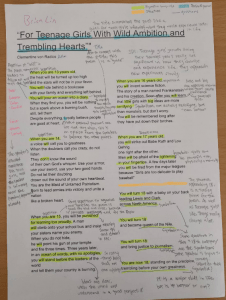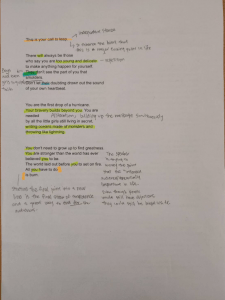When two events are disjoint, they have no common outcomes and cannot occur together. Have you wondered how this definition plays a role in The Crucible?
For two disjoint events, the probability that one or the other occurs is the sum of the probabilities of the two events. In The Crucible, Judge Hathorne and the Deputy Governor, Judge Danforth, are the two characters that serves as foil for each other.
In Act 3 in The Crucible, Judge Danforth holds and displays the power and dominance he has in the court. However, this makes his anxiety clear that he centers on his reputation to the majority. Therefore, it makes his decision biased, or that his decision can be altered easily based on the majority’s opinion.
Judge Hathorne doesn’t worries about his reputation because he has the majority’s trust. The minority who does not agree with him doesn’t matter. However, he does not trust the accuracy of his opinions. As the service of foil, Danforth trust himself as a fair-minded, which allows the court to be processed. Even though the two characters have completely opposite character traits, it allows the play to rise in plot, but doesn’t cross the line. If they have the same character trait of Judge Hathorne, the purpose of the court serves nothing. If they have the same character trait of Judge Danforth, there will be arguments arising between the two judges and the dominance control over the court.
 “Power and Dominance in the Court” by quimono via Pixabay
“Power and Dominance in the Court” by quimono via Pixabay
HATHORNE, astonished. She have robbed you?
PARRIS. Thirty-one pound is gone. I am penniless. He covers his face and sobs.
DANFORTH. Mr. Parris, you are a brainless man! He walks in thought, deeply worried. (117)
The emotion and context Harthorne and Danforth serves is completely different in the court. Hathorne doesn’t make much opinions about the case while Danforth bursts out his thoughts.
HATHORNE. Excellency, she is condemned a witch. The court have–
DANFORTH, in deep concern, raising a hand to Hathorne. Pray You. To Parris. How do you propose, then? (118)
The power and dominance of the court surely is being hold by Danforth, that he has the power to cut off Hathorne’s words.
The connection to characters that serves as foil to each other, isn’t necessarily disjoint about the characters, it’s about their character trait. To me, each and every family are disjoint because they each have different ways of doing things and things that they are used to do. Family members are complement to each other which also serves as foil to each other about their placement in the family. Some family members take up more and the others will receive less, but the probability that one or the others occur is the sum of the probabilities of the all the family members, 1.
The definition also allows the rule that one cannot entirely take over the other, in other words, to replace. If Judge Hathorne doesn’t have Danforth, he will have no control over the court, because nobody’s in control if Danforth’s gone. In another perspective, if a family member takes over another’s spot in the family, it’s not a family because someone is there but stands zero in the probability of 1.
MLA Citations:
Miller, Arthur. The Crucible: A Play In Four Acts. New York : Penguin Books, 1976. Print.






